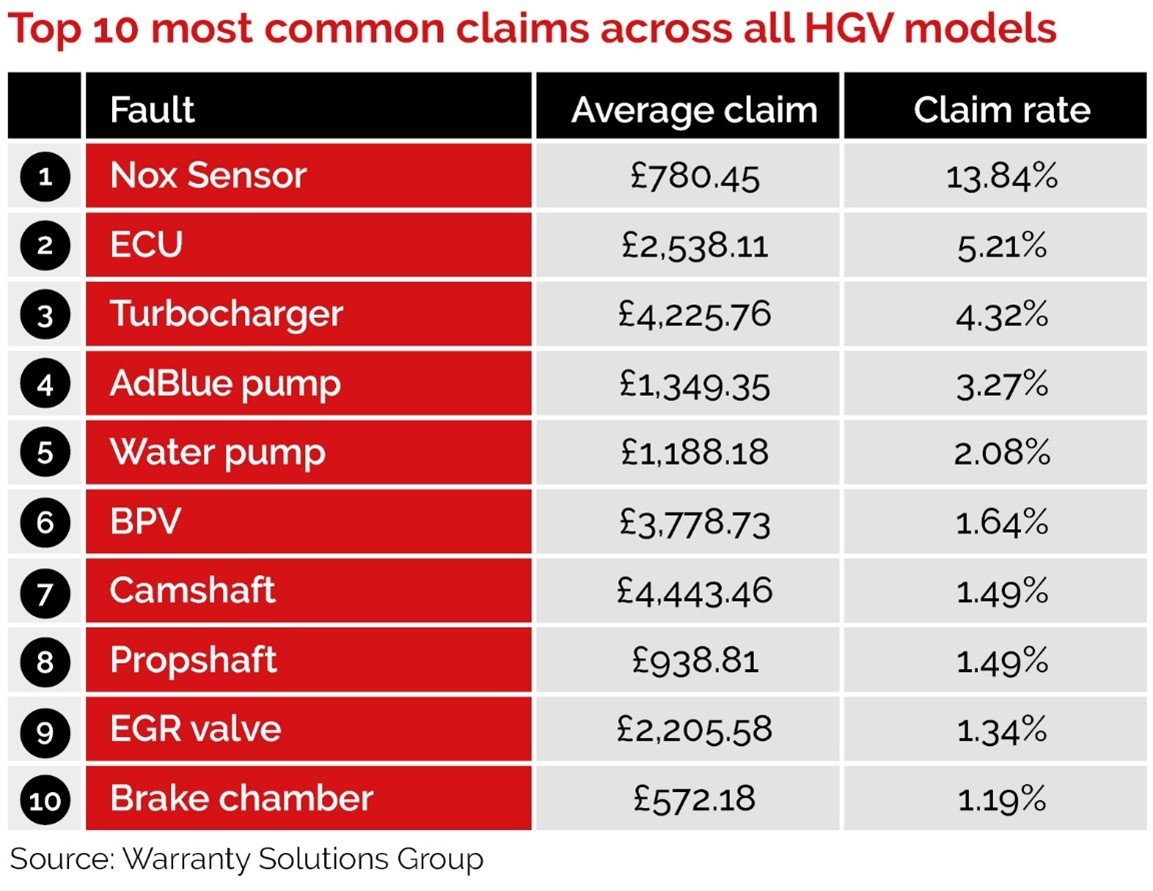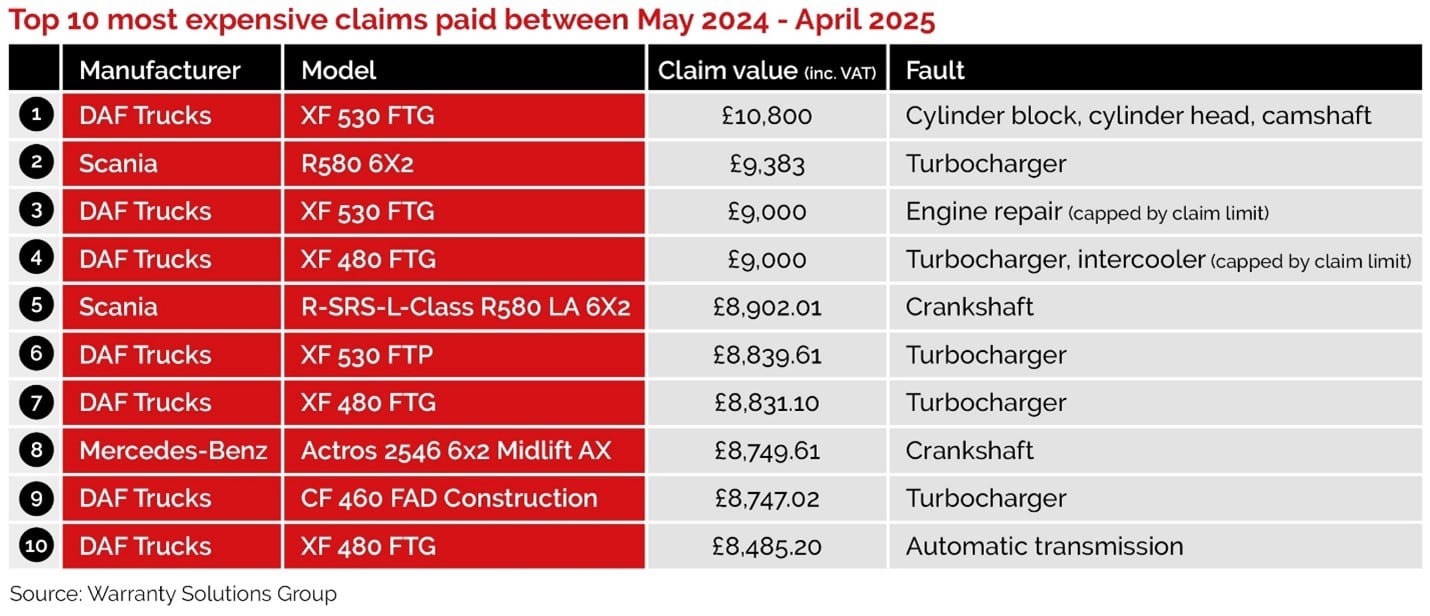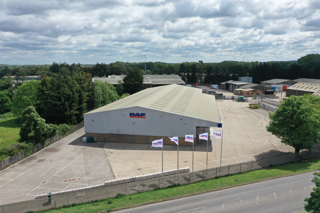The average truck repair cost rose by 11.8% over the past 12 months, from £1,585 to £1,772, according to new research from Warranty Solutions Group (WSG).
Its data also reveals the most common and most expensive HGV repairs - highlighting the critical components that most frequently lead to hefty repair bills.
According to WSG’s latest claims analysis, which was based on a sample of 300 HGV warranty claims settled between May 2024 and April 2025, the single most expensive claim came in at £10,800, covering a new cylinder block/head and camshaft on a Daf truck.
Daf trucks featured prominently in the rankings, accounting for eight of the top 10 highest claims - underlining the brand’s widespread use in UK fleets.
The remaining spots in the top 10 were filled by Scania (two claims) and Mercedes-Benz (one claim).
Other high-ticket items included £9,383 for a Turbocharger replacement on a Scania HGV and £9,000 for an engine repair on a Daf truck. The full repair cost was in excess of this but the claim limit was capped at £9,000.

The research also reveals the most common claims among eight-wheelers were: brake pressure valve failures with an average cost of £3,414; engine control unit issues with an average cost: £2,415; and turbocharger problems with an average cost: £7,563.
Mark Bobbins, head of commercial vehicle sales at WSG, said: “Over the past five years, the HGV sector has seen remarkable transformation, largely fuelled by advances in sustainability, safety, and automation. What was once a traditionally manual and mechanical space is now at the forefront of cutting-edge technology.
“Today’s trucks are smarter and safer than ever before. With the widespread adoption of advanced driver-assistance systems (ADAS) - such as lane-keeping aids, adaptive cruise control, and automated emergency braking - the risk of incidents is being reduced while driver wellbeing improves.”
He added: “We’re also seeing significant momentum in the development of fully autonomous trucks, particularly for long-haul highway journeys, with trials underway across the US, Europe, and China.
“Connectivity is another game-changer. Telematics now allows for real-time vehicle monitoring, predictive maintenance, and dynamic route optimisation - all of which help operators boost efficiency, cut emissions, and keep their fleets moving.
“However, with this rapid evolution comes a challenge. The pressure to get vehicles back on the road quickly means there’s often little time to consider aftermarket options.
“Increasingly, we’re finding that operators default to main dealers for parts and repairs, simply to minimise downtime.”
Bobbins says that the figures highlight just how vital preventative maintenance and robust warranty protection have become for today’s fleet operators.
“A single engine or turbo failure can cost thousands - and that’s before you even consider the knock-on impact of downtime, missed deliveries, and disrupted schedules,” he said.
“In an industry where uptime is everything and reliability is non-negotiable, our latest data sheds light on the true financial burden of unexpected HGV failures. It’s not just about repairing a part - it’s about lost productivity, unhappy customers, and damage to your business reputation.
“Fleet managers must go beyond reacting to problems. They need to anticipate them by understanding which components are most prone to failure and putting safeguards in place.”
Most common claims across all types of HGV
Nox sensors were the single most common failure across all types of heavy commercial vehicles, making up 13.8% of all HGV claims and with an average repair cost of £780.
The main cause of failure was carbon build-up due to vehicle age and mileage.
Engine control units (ECUs) were the second most common with an average claim of £2,538, whilst turbochargers took the third spot, making up 4.3% and attracting an average cost of £4,225.
























Login to comment
Comments
No comments have been made yet.